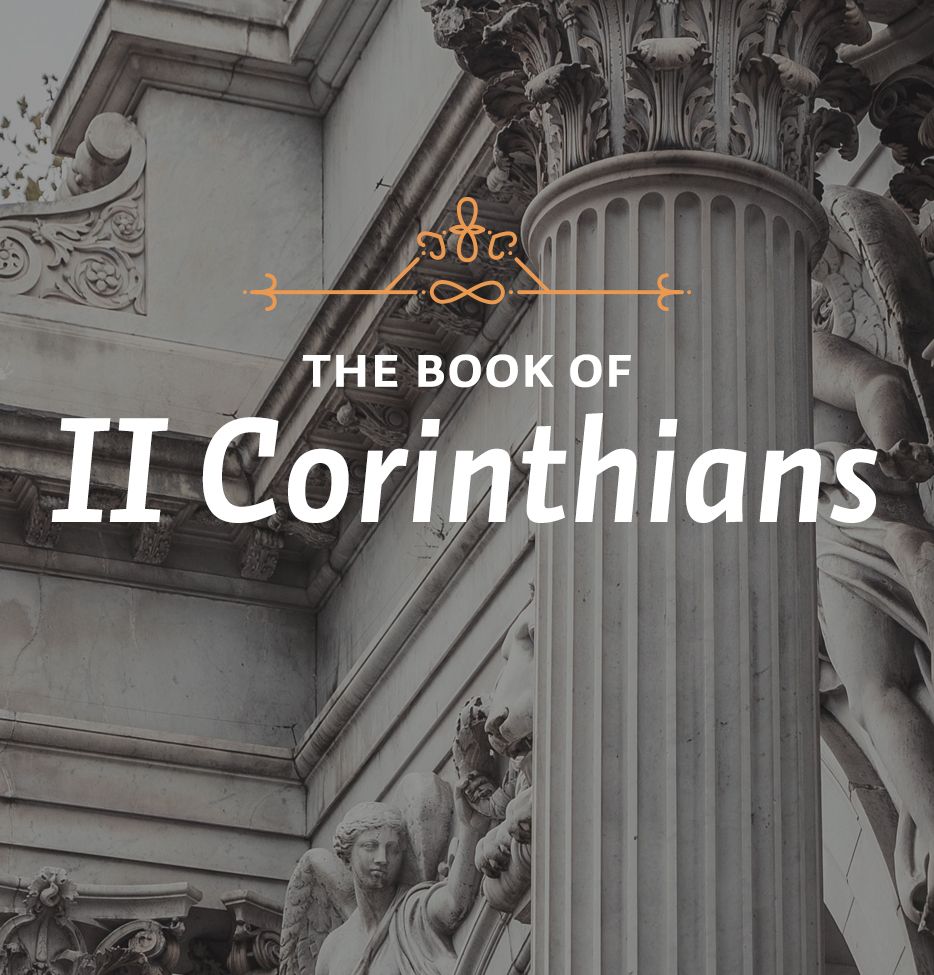In 2 Corinthians 2:13 Paul went on to remind the Corinthians that he had not taken any money from them on his previous visit. That is an interesting thing because there were places in which Paul did take it. As a matter of fact, there are other places in his writings where Paul set up ground rules for the churches, which included paying those who minister the Word. Paul was not at all opposed to that in principle, and, presumably, he had benefited from the generosity of the churches he served on other occasions. It was through the generosity of the churches in Macedonia, in particular, and perhaps others as well, that Paul was able to live and carry on a full-time ministry.
There were times, of course, when money was not available for Paul. At those times Paul labored as he did at Corinth making tents. But although Paul was not opposed to receiving money for the work, in principle, and although in other places he did receive it and carry on his work, at Corinth he did not.
I do not understand that because Paul does not explain it. It may well be that he had a special revelation about it. Or perhaps, with his characteristic sensitivity, he realized that this was going to be a particular difficulty in the church at Corinth. But whatever the case, whatever the reasoning behind it, as a point of fact in history, Paul had brought the Gospel to Corinth apart from any giving on their part. So Paul stated in a rather ironic way that the false apostles were obviously there for monetary reasons. He wrote to the Corinthians, “How were you inferior to the other churches, except that I was never a burden to you? Forgive me this wrong!” (2 Cor. 12:13). In this reproof Paul was reminding them of the fact that, not only was the Gospel the authentic Gospel, it really came to them in full grace apart from any giving on their part. So, Paul looks backwards to what God has done.
After reflecting back, Paul directed the flow of his writing to the future by explaining what he intended to do, and what he anticipated that God would do when he visited them for a third time. Let me point out that Paul’s mention of a third visit is a bit difficult to reconcile with other New Testament writings. When we study these Corinthian letters over against the account of Paul’s activities we find in Acts, we do not find three visits of Paul to Corinth; we find only two.
Some scholars maintain that Paul was speaking of his plans to visit, rather than actual visits. In other words, this was his third attempt to visit. That is a possible way of interpreting verse 14. But the difficulty is that when you move on to chapter 13, you cannot reinterpret that text in that manner. In 2 Corinthians13:1, Paul simply says, “This will be my third visit to you.” So, the visit he is contemplating at this point is the third. So there must have been a second visit in there that we do not know about.
How can that be? The answer, of course, is not all that difficult. It is simply to recognize that the book of Acts is not comprehensive in its detailing of Paul’s ministry. As I read Acts, I find that since so much of it deals with Paul, we tend to think of it as a record of Paul’s journeys. It is actually a record of the expansion of the Gospel from Jerusalem to Rome in which a number of people were active, including Peter in the early chapters, then Philip, Paul, and others along the way. Much of it does focus on Paul, but it is not an exhaustive treatment of his life.
There is no reason at all to be concerned that a second visit to Corinth was simply left out of Scripture. Presumably, there were three visits. Paul made a first visit in which the church was founded. He made a second visit, which he calls elsewhere “a sorrowful visit,” the one he seems to refer to here when he was unsuccessful in straightening out the problems in the church.






